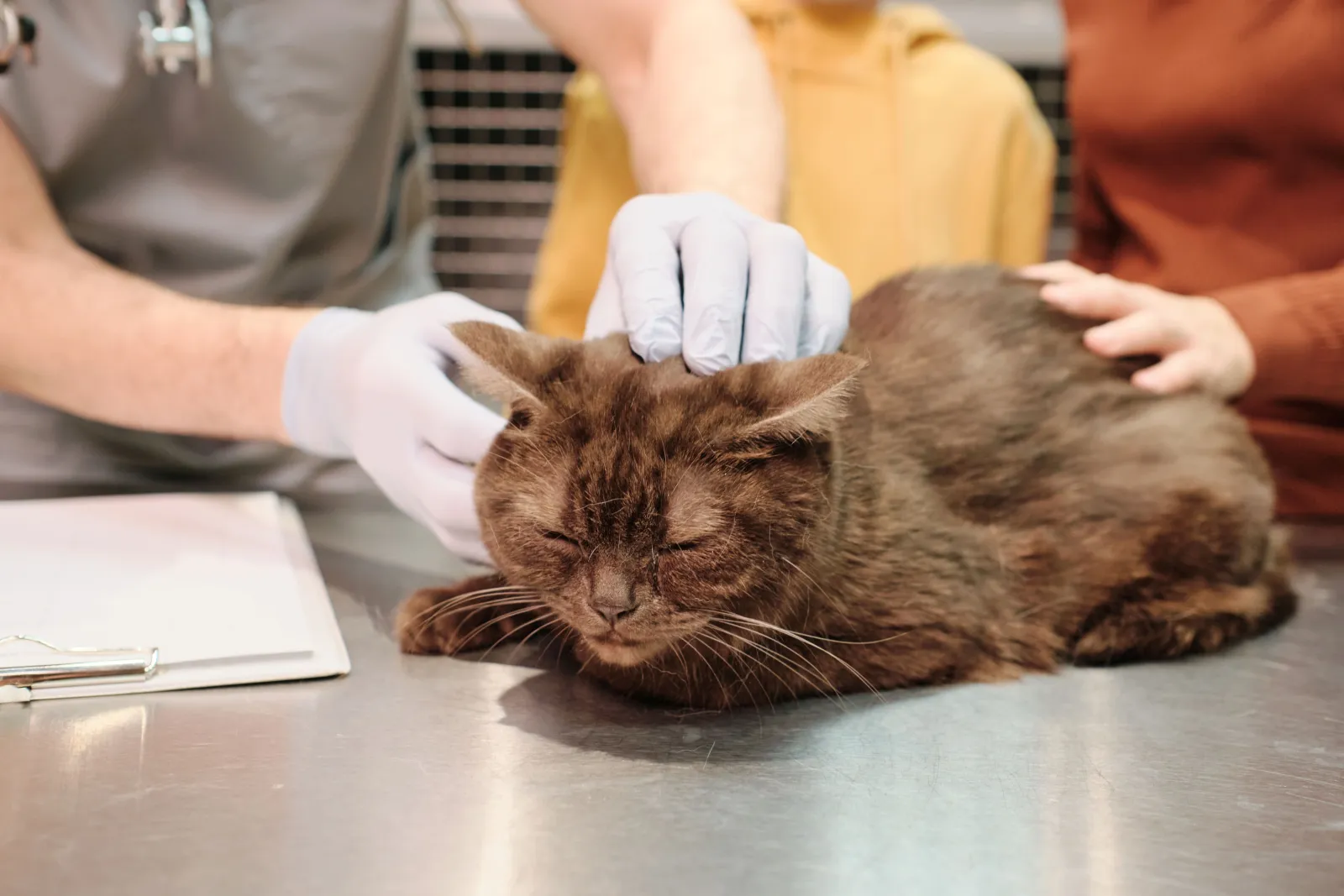What Should I Do If My Cat Has Giardia?
If you've noticed that your beloved feline friend has been experiencing digestive distress, it may be suffering from feline giardiasis. Giardia in cats is a common issue that can cause discomfort and health problems. Discover the signs of giardia, how giardia transmission occurs, natural treatment for giardia, and tips on preventing giardia in cats.

Understanding Feline Giardiasis
Feline giardiasis is an intestinal infection caused by the protozoan parasite giardia, which is commonly found in water and can infect both humans and animals. This parasite is especially concerning because it can survive outside the host for long periods, waiting for an opportunity to infect a new host.
How Giardia Transmission Occurs
Giardia transmission in cats typically occurs through the ingestion of infected water or exposure to contaminated feces. This means that outdoor cats or those in multi-pet households are more likely to contract this parasite. Additionally, giardia can spread quickly in environments like kennels or animal shelters.
Symptoms of Giardia in Cats
Cats infected with giardia may show various symptoms, including:
- Diarrhea, often sudden and accompanied by a foul odor
- Greasy stools that may float
- Dehydration
- Weight loss
- Occasional vomiting
If your cat exhibits any of these symptoms, it's essential to seek advice from a veterinarian to confirm an accurate diagnosis and establish an effective treatment course for your cat.
Natural Treatment for Giardia
When it comes to natural treatment for giardia, there are several approaches you can take to support your cat's recovery alongside veterinary care:
- Probiotics: Adding probiotics to your cat's diet can aid in rebalancing the natural flora of their intestines, aiding in recovery from giardiasis.
- Hydration: Ensure your cat continuously has access to fresh, clean water to avoid dehydration.
- Dietary Adjustments: Feeding your cat easily digestible foods during recovery can help alleviate symptoms.
Discussing any natural remedies with your veterinarian to confirm their safety and effectiveness for your cat's specific condition is important.
Preventing Giardia in Cats
To aid in preventing giardia in cats, consider implementing the following strategies:
- Environmental Hygiene: Maintain a clean living environment for your pets. Regularly clean and disinfect areas where your cat eats, sleeps, and plays. Use pet-safe disinfectants to clean litter boxes, feeding areas, and bedding. It is important to remove feces from the litter box daily and wash it with hot, soapy water weekly.
- Water Management: As mentioned previously, always provide your cat with fresh, clean water. Change the water at least once a day, and clean the water bowls regularly to prevent the growth of microbes. For outdoor cats or in multi-cat households, consider using water filtration systems that can remove potential contaminants from drinking water.
- Control Outdoor Access: If possible, limit your cat's outdoor access to prevent exposure to infected areas. Outdoor areas where standing water can collect may harbor Giardia cysts. If your cat does go outdoors, monitor its activities and keep it away from muddy, wet areas.
- Regular Veterinary Check-ups: Regular check-ups with your veterinarian can help catch giardiasis and other health issues early. During routine visits, discuss preventive treatments and check for signs of parasitic infections. Reach out to us for advice tailored to your cat's environment and lifestyle.
- Proper Nutrition: A well-balanced diet supports your cat's immune system, making them less susceptible to infections like giardiasis. Feed high-quality commercial cat food, and avoid raw diets that can increase the risk of parasitic infections.
- Pet Hygiene: Regular grooming can help reduce the amount of dirt and potential parasites on your cat's fur. For cats prone to roaming outdoors, a quick wipe-down with a moist towel can eliminate any cysts before they groom themselves and ingest the parasites.
- Educate Yourself and Your Family: Understanding the risks and routes of Giardia transmission helps in effective prevention. Educate your family about the importance of hygiene and the steps they can take to prevent the spread of parasites at home.
When to See a Veterinarian
If you suspect your cat has giardia or if it shows signs of illness, do not hesitate to visit a veterinarian. Timely diagnosis and treatment are crucial for your cat's health. For more information on how we can help, visit our services page.
Dealing with feline giardiasis can be distressing for both you and your pet. By understanding Giardia transmission, recognizing the symptoms, and knowing about natural treatments for giardia, you can take proactive steps in preventing giardia in cats. Always consult a Forever Vets professional for tailored advice and treatment options.
For more guidance on how to protect your pets from parasites, check out our blog on pet safety or contact us directly to schedule an appointment. Remember, at Forever Vets, your pet's health is our top priority. Contact us today for more resources and assistance.


